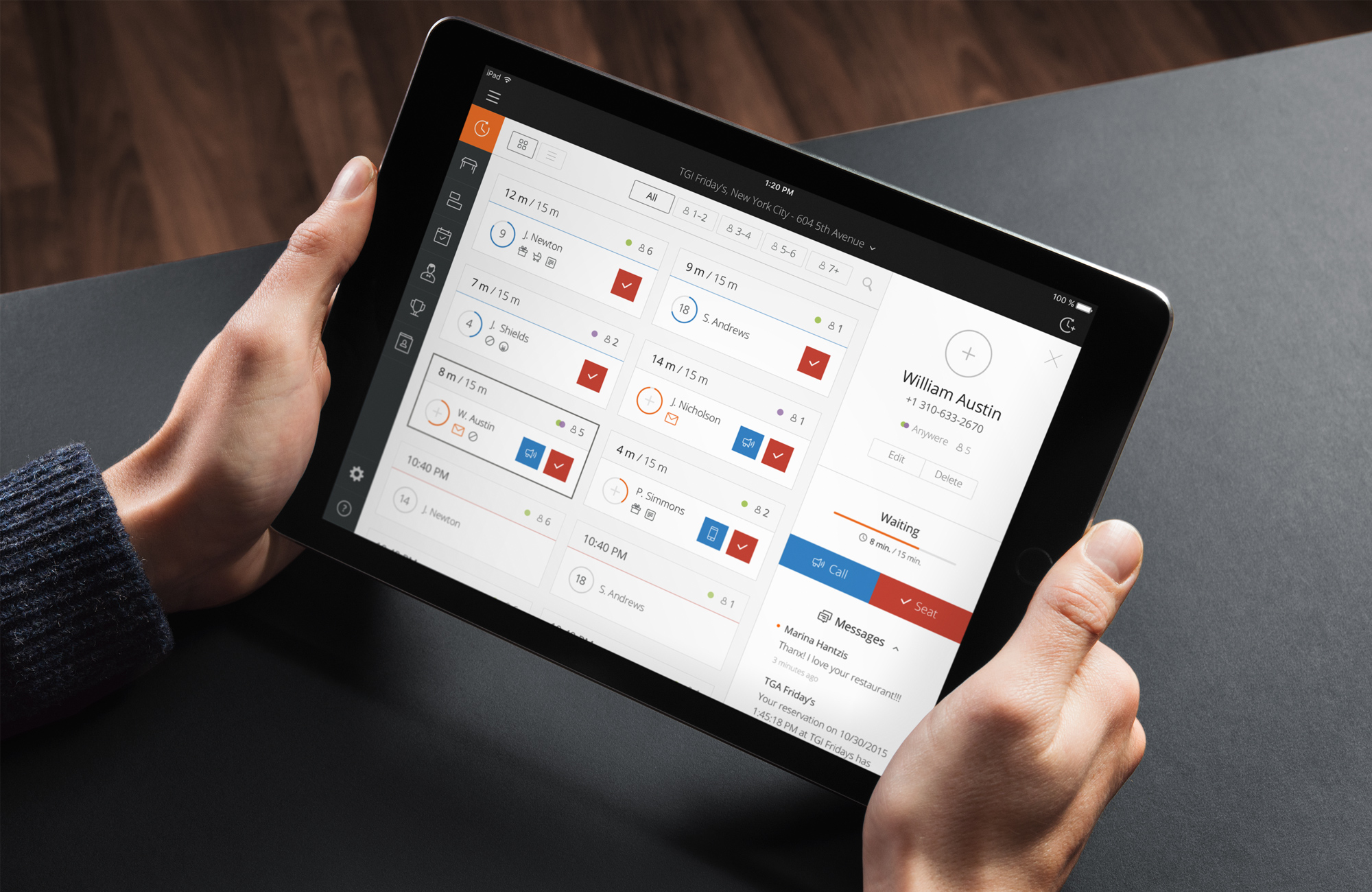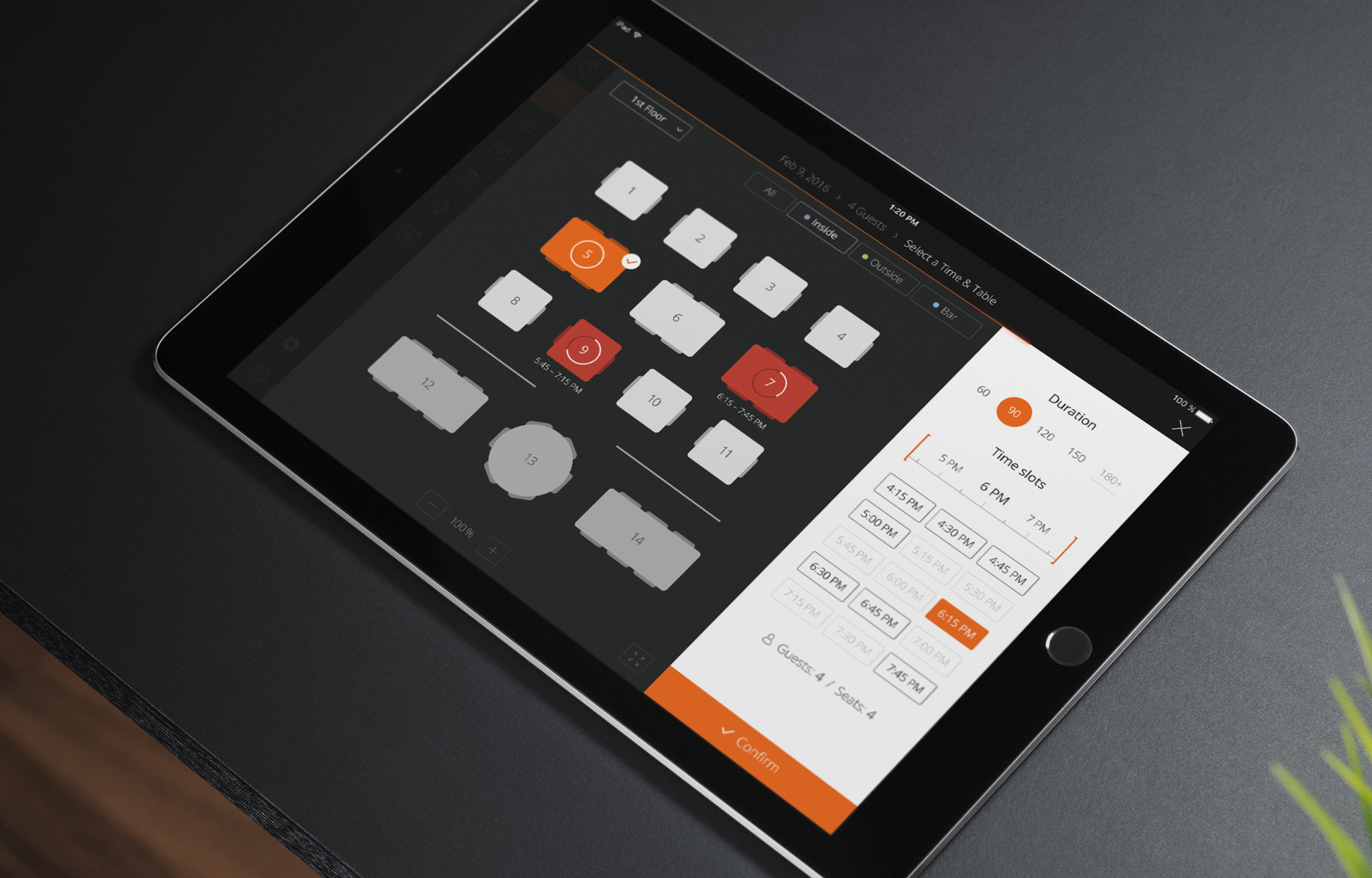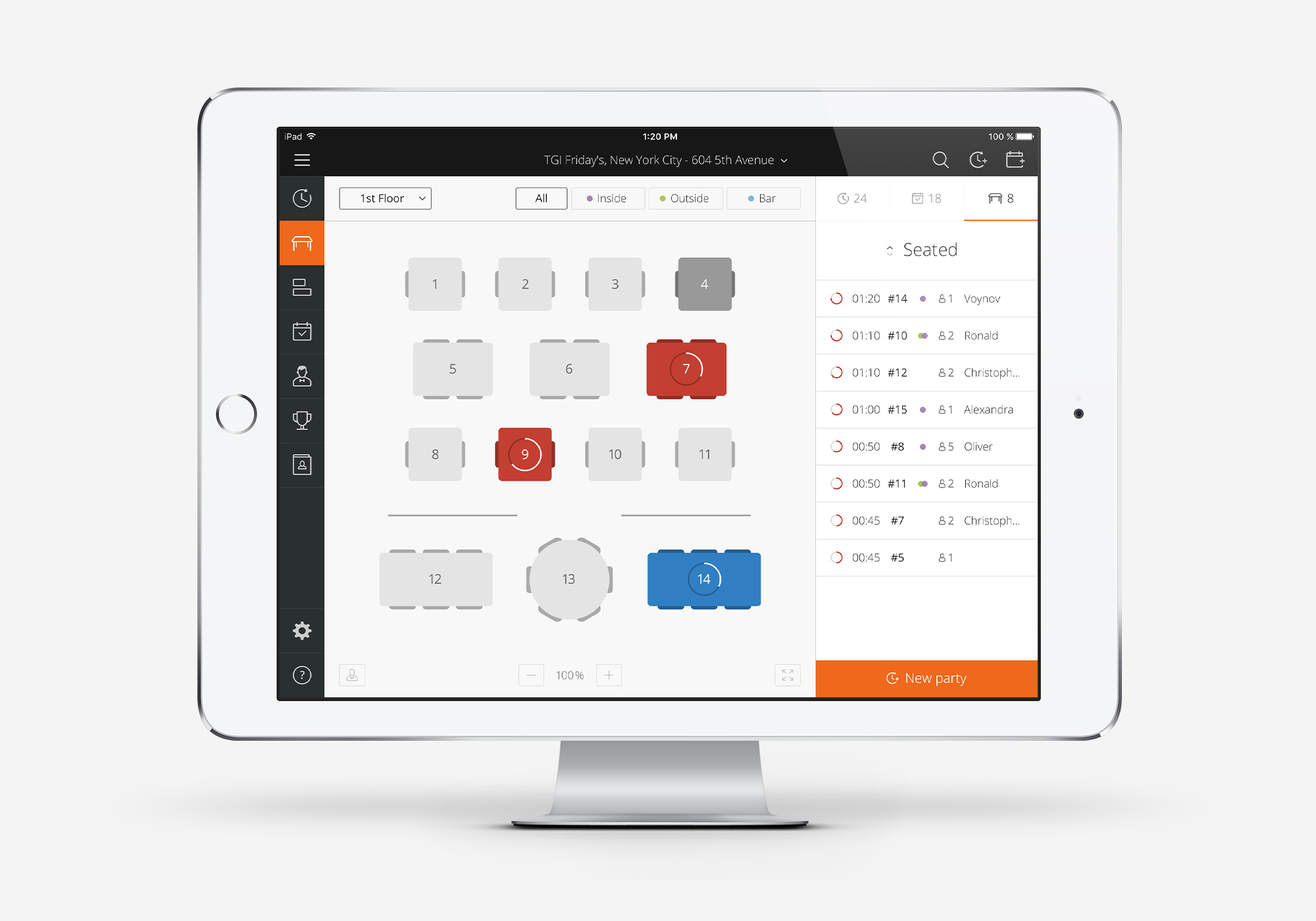Tech Talk: ‘The Waiting Game Has Changed’
6 Min Read By MRM Staff
How many times have you hummed Tom Petty’s “The Waiting is the Hardest Part,” when attempting to dine at a restaurant? Hostme was designed to replace the traditional reservation system with a real-time app that makes no-shows and big buzzers obsolete and enhances the guest experience.
In this edition of Tech Talk, Modern Restaurant Management (MRM) magazine discusses ways technology can help simplify front- and back-of-the-house operations, improve efficiency and increase revenue with Hostme’s Chief Marketing Officer Marylise Fabro.
What are the problems Hostme seeks to solve?
Restaurant owners face fierce competition, which drives a constant need to improve the experience they provide their guests while working on reining in their costs.
Hostme me offers a solution to manage your restaurant and its guests more efficiently. It eliminates the need for those pesky and costly pagers. Now, guests can be texted on their phones directly. Hostme also greatly reduces the number of no-shows or guests who are unwilling to wait. It also simplifies the front-of-the-house operations, avoiding lost reservations, slow cover turnover and mismanagement of the waitlist.

What do you mean by “waiting is a frame of mind?”
Before Hostme, guests would have to wait in front of the restaurant or, if lucky, would be given a pager to let them roam in the close vicinity of the restaurant. With Hostme, waiting guests have more options; they can go to the bar next door for a drink or they can take a walk. The waiting game has changed.
How does Hostme reduce frustration for guests and restaurant staff?
Guests can now get on the waitlist and just stroll around without having to wait in the restaurant’s front lobby. They don’t think about it as waiting time, since they can continue their shopping or have a drink at a nearby place. They also won’t have to repeat the same information over and over again about their allergies or their dietary restrictions; everything will be in their profile available to the host.
For the restaurant staff, it simplifies communication; they all have access to the app and can see which tables are reserved or busy. The process is streamlined and eliminates sources of confusion and frustration. For the wait staff, it ensures a fairer distribution of the tables by a simple algorithm that informs the host as to which servers should be assigned the next table.
What’s an example of a Hostme restaurant success story?
One of the Hostme success stories is Board, a game place in Exeter in the UK. They have a neat concept for people to come, borrow one of the restaurant games and play while ordering food. While this is a great idea to bring the community together, Luke, the owner, was struggling to keep tabs on table occupancy and reservations. He was looking for a solution to manage this complex process. His search led him to Hostme. In the first month of using the Hostme app, Luke not only saw his revenue increase by 20 percent, he has also greatly appreciated the simplicity and ease of managing his business through the app.
In what ways can technology be used to encourage guest loyalty?
This question deserves a much longer response, but I will try to make it short. Nowadays, phones provide a permanent connection to our customer base. To some extent, they have come to expect it and welcome the interruption, as long as it’s for a good deal or interesting news. This ongoing conversation with our customers is both a blessing and a curse. Restaurant owners can nurture that conversation to fuel their guest loyalty, but it also comes with its set of responsibilities. Guests will expect benefits for paying attention, something like rewards, first news on particular events or special treatment on specific holidays. They will also be very vocal about the experience they’ve had. Restaurant owners have to be very well aware of the rules of the games. A series of bad reviews can be deadly to a budding business or in a competitive area. Technology also opens the door for gaming the reward process to encourage guests to participate and come back.
How can technology promote brand awareness?
If by technology we means social media, the answer is pretty obvious. Restaurants, by sharing images and details about the everyday life at their location, and by creating an appealing atmosphere, can build awareness for their restaurant. Other guests will happily share the news with their friends — if it is worth sharing.
How does technology promote efficiency in hospitality?
Different technologies are now available to restaurant owners to help improve their restaurant’s efficiency. For instance, the ordering and kitchen system help them manage their orders faster and more accurately while providing better inventory, thus reducing food waste and supporting faster execution all around.
Front-of-the-house management systems (a.k.a. reservation management systems), such as the Hostme app, provide a more accurate management of table guests and the table turnover rate. By accurately tracking table occupancy, as well as the time elapsed at the table, managers can quickly identify problems — such as guests being seated but food not being served — and proactively solve the problem before their guests become frustrated.
What trends are you seeing from diners in what they expect from technology at restaurants?
Their expectations will vary depending on the type of restaurant they are visiting. When going to a casual place, they will expect a fast but pleasant experience and will appreciate it if some of those interactions are facilitated through technology. For instance, they won’t mind booking a table through their phone, then ordering, paging their servers or paying through a screen that can be located on their tables. For higher end restaurants, diners expect more human interactions but will still appreciate it if the service is fast and accurate. Those are widely different expectations but an overall experience that technology can greatly ameliorate.
What are the advantages of increasing technology use in the hospitality industry?
Well, I believe we already covered some of the advantages. Another major one is that guests are becoming increasingly addicted to their mobile devices and simply prefer booking a restaurant from their phone. They just feel more comfortable with that method and find it more convenient. As proof, we have seen Hostme customers being flooded with online reservations as soon as they added the functionality to their website.
To sum it up, technology allows restaurants to offer better experiences to their guests while increasing revenue through more accurately fulfilled orders and better management of inventory and staff.
How tech savvy do restaurant owners and operators need to be?
That’s the beauty of this new tech era. Most apps can be easily installed on any devices and are ready to run from the get-go. All tech providers have to do is focus on usability — to make it easy to use — and offer customization, as needed. And as this industry gets increasingly competitive, tech providers have had to up their support and provide comprehensive training tools to their customers. As a result, restaurant owners don’t need to be particularly tech savvy and can receive all the help they need by just asking their service provider.
How are fears allayed regarding technology taking away from hospitality?
We always worry about change, mostly because we are not sure how it will affect our lives. None of the new technologies for the hospitality industry have taken anything away but simply improved the guest’s experience while reducing waste — which is a good thing. Restaurant owners should embrace technology and research which one is best suited for their needs. At the end of the day, technology is here to help, and in that particular industry, I don’t really see anything to fear about it unless you fear an easier, more fulfilling job.
What do you envision the restaurant table of the future looking like?
Again, it all depends what type of place you are talking about. For casual and fast dining, I can imagine a restaurant where guests can book their table online, then order their food at the table, but still be able to page a server if need be. Food is then quickly processed and delivered to their table. Then they can pay online and leave. Actually, the restaurant app can charge them directly and the guests don’t even have to take any action.
For higher end places — sure, they can still book their table online, but the restaurant automatically recognizes them and knows who they are and what they like, resulting in a much more personalized experience. This could also apply to fast dining, to some extent. The guest will still have a dedicated staff team to wait on them, but again, payment would be automatic at the end of the meal.
In what ways can independent restaurants, which might have fewer resources, use technology to their advantage?
First, I would strongly recommend that they do their homework and evaluate if the technology is worth the money or worth replacing a current system. A good example is OpenTable. It used to be a powerful tool for restaurant owners to get reservations and raise brand awareness. However, the social media/internet scene has dramatically changed in the last few years, so that most reservations may now be coming through Google or TripAdvisor. Now, is OpenTable still worth it for them? Or could they find other providers to help with table management or reservations at a fraction of the cost and then spend that money on other, more effective, advertising options?
Today, there is a vast array of service providers at many price points, each offering various ways to improve restaurant operations. Figure out what your weaknesses are and what frustrations your guests have. Are you wasting too much food? Are you losing pagers right and left? Are your guests frustrated because you mismanaged their reservation one too many times? You can easily put a figure on those costs; then you can find out if a tech solution exists to help solve your problem and what the costs are for it.

